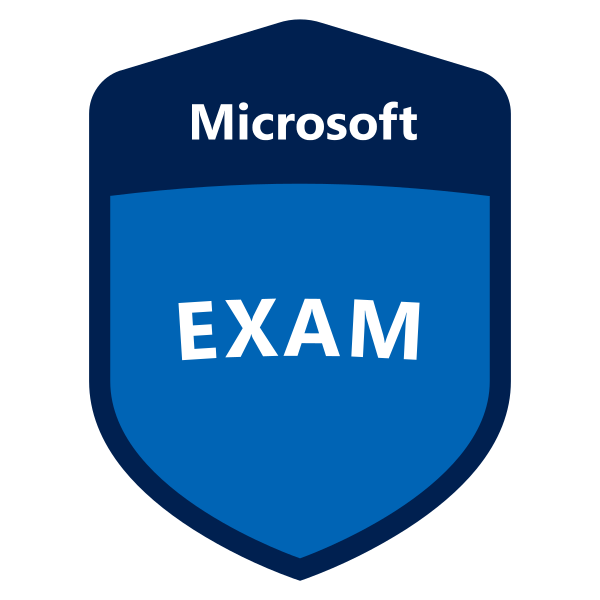

Power Platform Solution Architect
(PL-600T00-A)
The Solution Architect is responsible for the successful design, implementation, deployment and adoption of an overall solution. The Solution Architect ensures that the solution meets the customer’s needs now and in the future. In this course, students will learn about decisions a Solution Architect makes during an implementation, covering security, integrations, Power Apps architecture, Power Automate architecture, and more. This course is designed to give you an introduction to the Solution Architect role and will replace the course MB-600T00 ( Dynamics & Power Platform Solution Architect Expert).
Public visé:
Consultants seniors (fonctionnels et techniques) qui souhaitent devenir architectes de solutions ou qui occupent un poste d’architecte de solutions depuis peu
Pré-requis:
Aucun
Objectifs pédagogiques:
À l'issue de ce cours, vous serez capable de :
- Être capable de décrire les composants de Power Platform : Power Apps, Power BI et Microsoft Automate
- Décrire les composants de Power Platform : Common Data Service, Connectors and AI builder
- Décrire des scénarios inter-cloud sur M365, Dynamics 365, Microsoft Azure et des services tiers
- Savoir identifier les avantages et les capacités de Power Platform
- Être en mesure d'identifier les fonctionnalités de base et la valeur commerciale des composants Power Platform
- Comprendre comment implémenter des solutions simples avec Microsoft Automate, Power BI et Power Apps
Programme de cours
Module 1: Becoming a Solution Architect/Getting to know your customer
Lessons
- Define a Solution Architect
- Role of a Solution Architect on projects
- Project Methodology
- Getting to know your customer
- Group exercise - Getting to know your customer
Module 2: Conceptualizing the design from requirements
Lessons
- How to lead the requirement collection effort
- Using fit gap analysis
- Pillars of good architecture
- Blueprinting the solution architecture
- Group exercise - Design from requirements
Module 3: Project governance and working as a team
Lessons
- Solution Architect's role in project governance
- Techniques for keeping a project on track
- Scenarios that could cause a project to fail
- Group exercise - Project governance and working as a team
Module 4: Power Platform Architecture
Lessons
- Key Power Platform architecture components
- Understand how platform design and limits influence solution architectures
- Updates and feature releases
- Understand how to communicate how the platform meets customer needs
Module 5: Data Modeling
Lessons
- Data model influences
- Data model strategy
- Data types
- Data relationships
- Group exercise - Data modeling
Module 6: Analytics and artificial intelligence
Lessons
- Planning and evaluating requirements
- Operational reporting
- Power BI
- Enterprise BI
- Pre-built insights and custom AI
Module 7: Power Apps Architecture
Lessons
- Discuss options for apps and how to choose where to start
- Discuss app composition options
- Using components as part of your app architecture
- Considerations for including Portals as an app in your architecture
- Group exercise - Power Apps Architecture topics
Module 8: Application Lifecycle Management (ALM)
Lessons
- Microsoft vision and Solution Architect's role in ALM
- Environment strategies
- Defning a solution structure for your deliverable
Module 9: Power Automate Architecture
Lessons
- Discuss options for automation and custom logic
- Review considerations for using triggers and common actions
- Explore using Business Process Flows (BPF) to guide users through business processes
- Group Exercise - Evaluate scenarios for Power Automate usage
Module 10: Security Modeling
Lessons
- Solution Architect's role in security modeling
- Discovery and learning your client's environment
- Controlling access to environments and resources
- Controlling access to CDS Data
- Group Exercise - Security Modeling
Module 11: Integration
Lessons
- Solution Architects role in Integrations
- What is an integration and why do we need it
- Platform features that enable integration
- CDS Event Publishing
- Scenarios for group discussion
Module 12: Dynamics 365 Applications Architecture
Lessons
- Solution Architect's role when deploying Dynamics 365 apps
- Architecture Considerations for primary apps
- Group Exercise - App specific working groups evaluate requirements
Module 13: Power Virtual Agents architecture
Lessons
- Introduction
- Chatbot options
- Chatbot concepts
- Best practices
- Integrate chatbots
- Power Virtual Agents in Microsoft Teams
Module 14: Robotic Process Automation
Lessons
- Introduction
- Power Automate Desktop
- Recording and editing tasks
- Running desktop flows
- Process advisor
Module 15: Testing and Go Live
Lessons
- Solution Architect's role with testing and go live
- Planning for testing
- Planning for go live
Additional Reading
https://docs.microsoft.com/en-us/learn/paths/become-solution-architect/
Certification (en option) :
Prévoir l'achat d'un bon en supplément
Le passage de l'examen se fera (ultérieurement) dans un centre agréé Pearson Vue
L'examen (en anglais) s'effectuera en ligne
Modalités d’évaluation des acquis :
En cours de formation, par des études de cas ou des travaux pratiques


